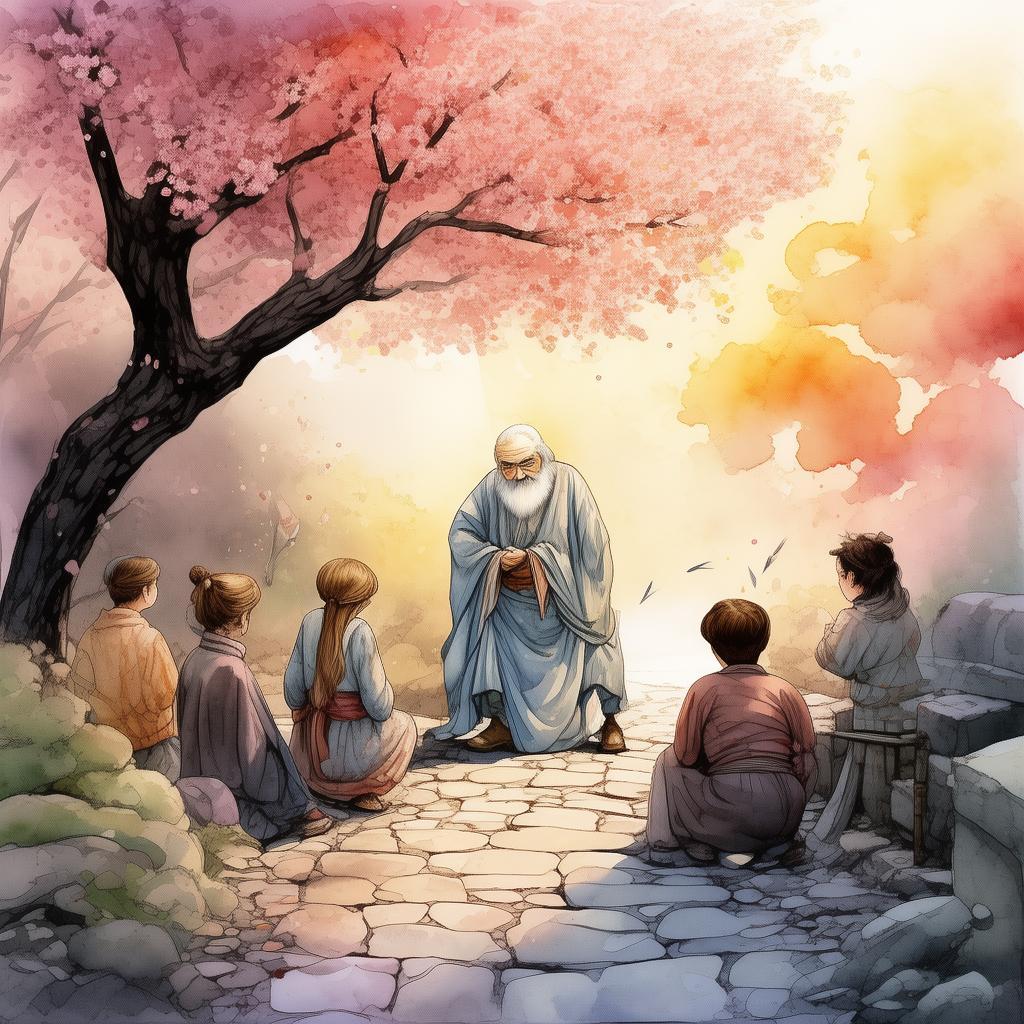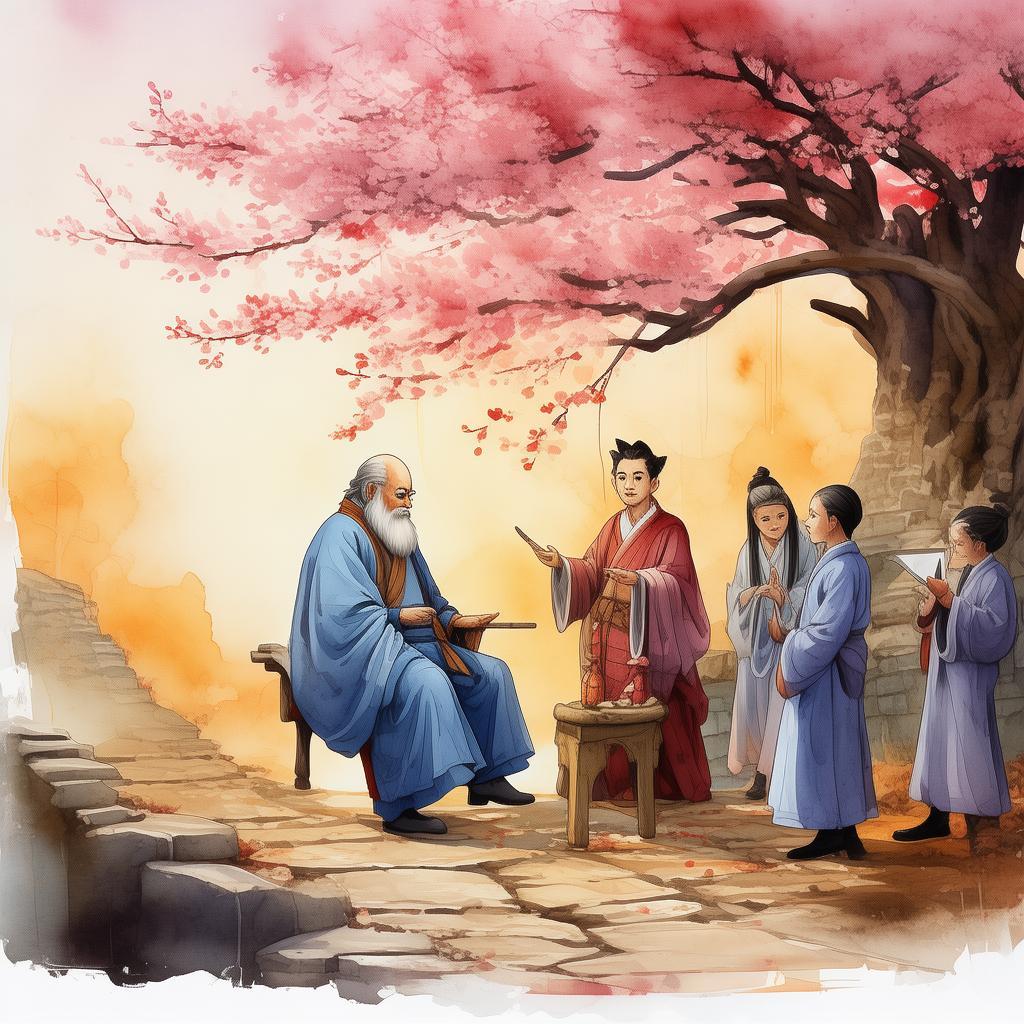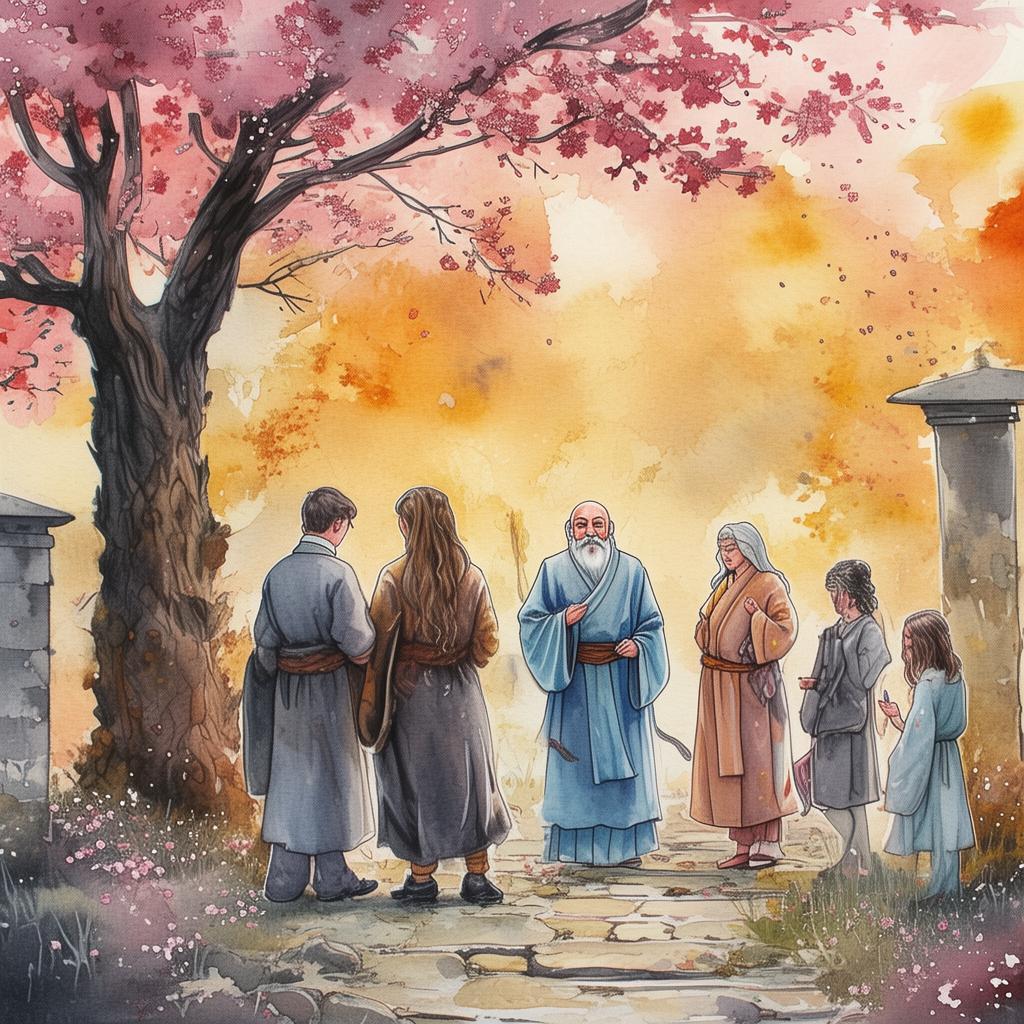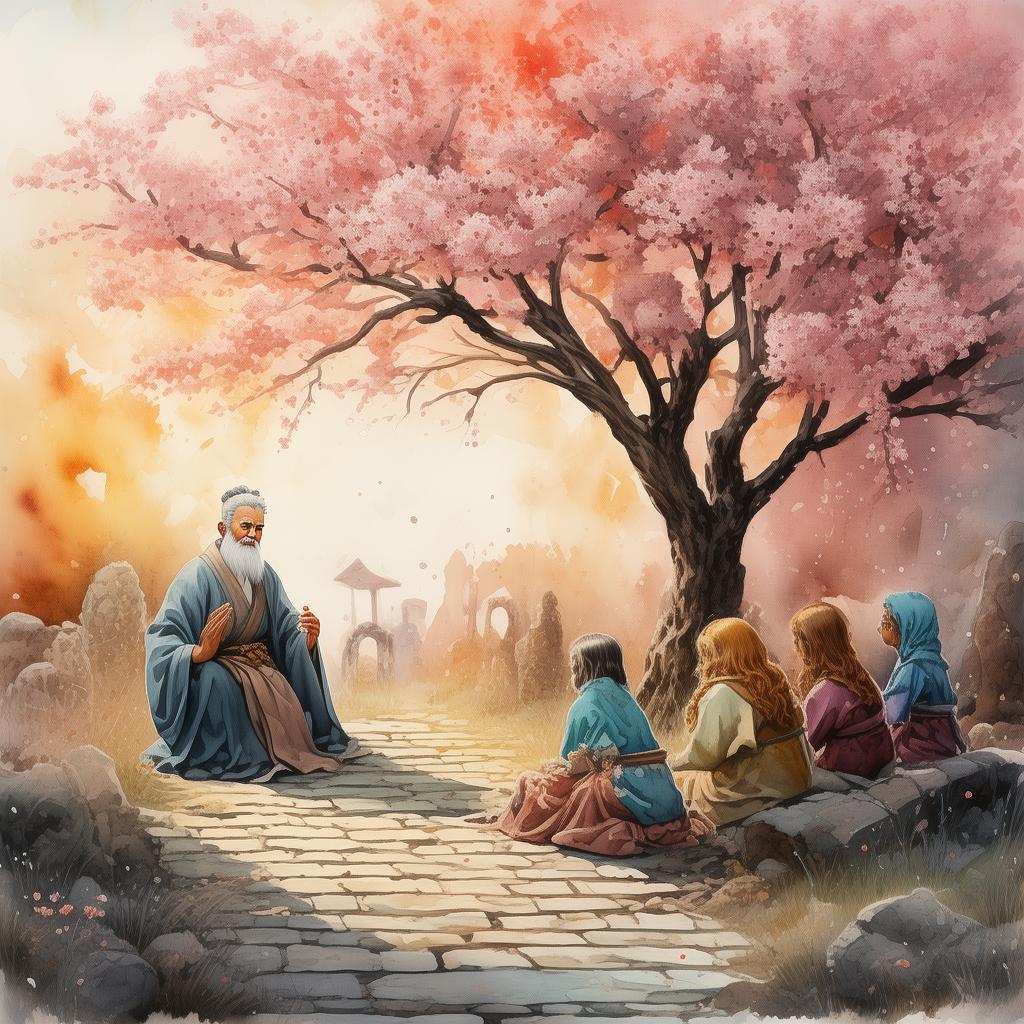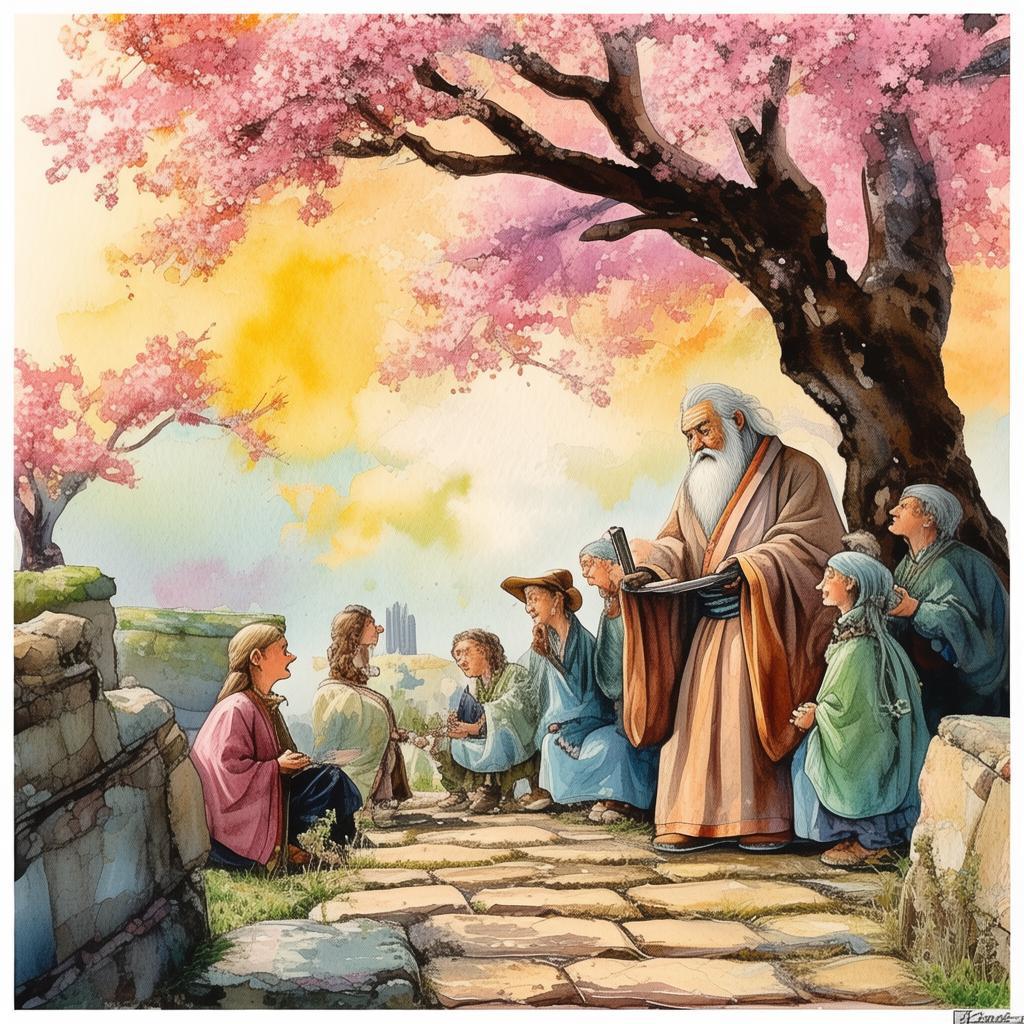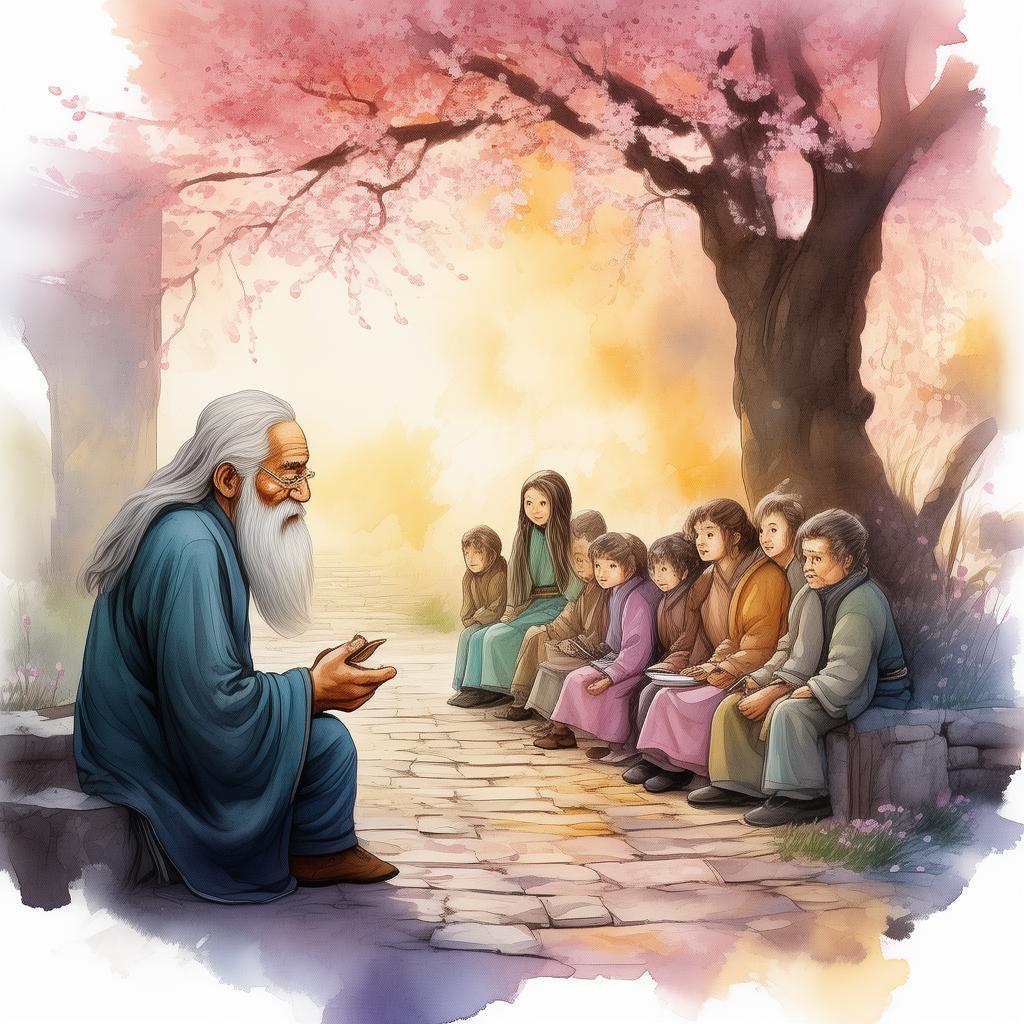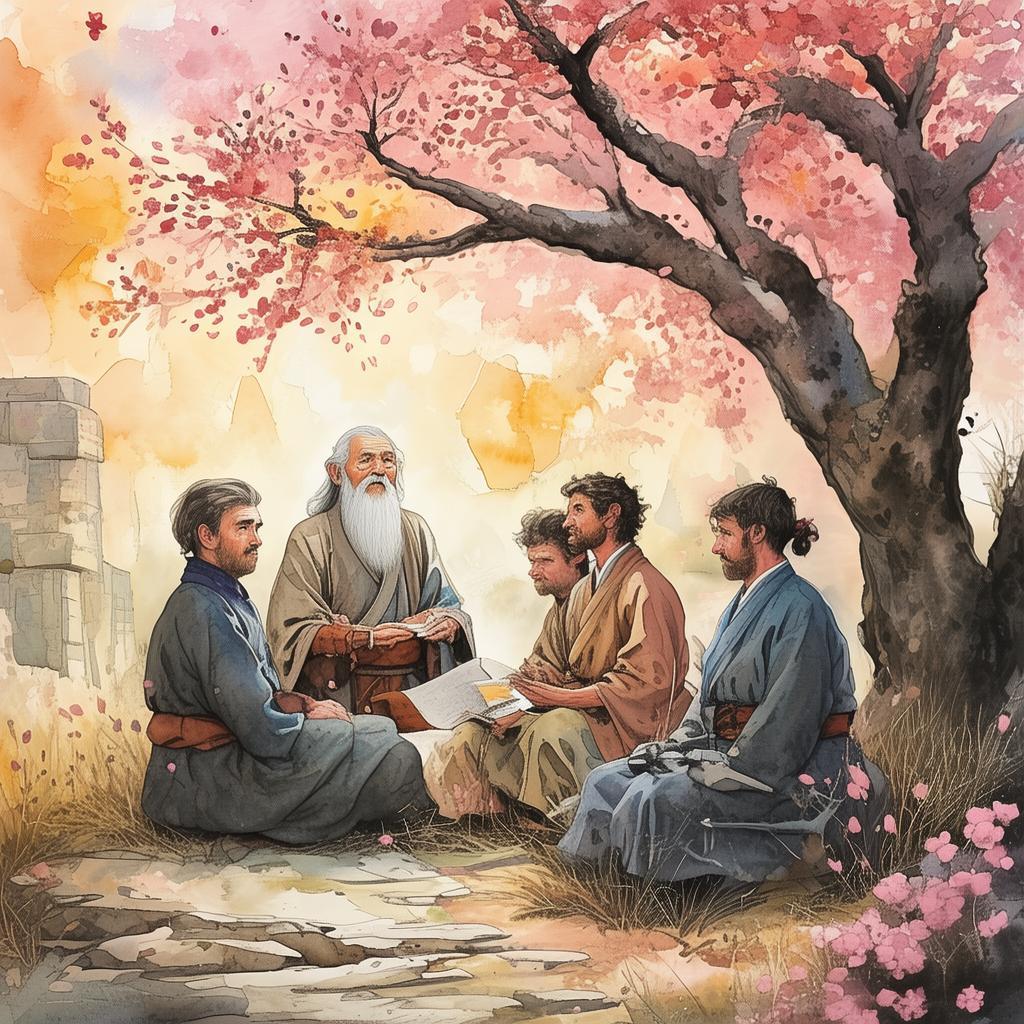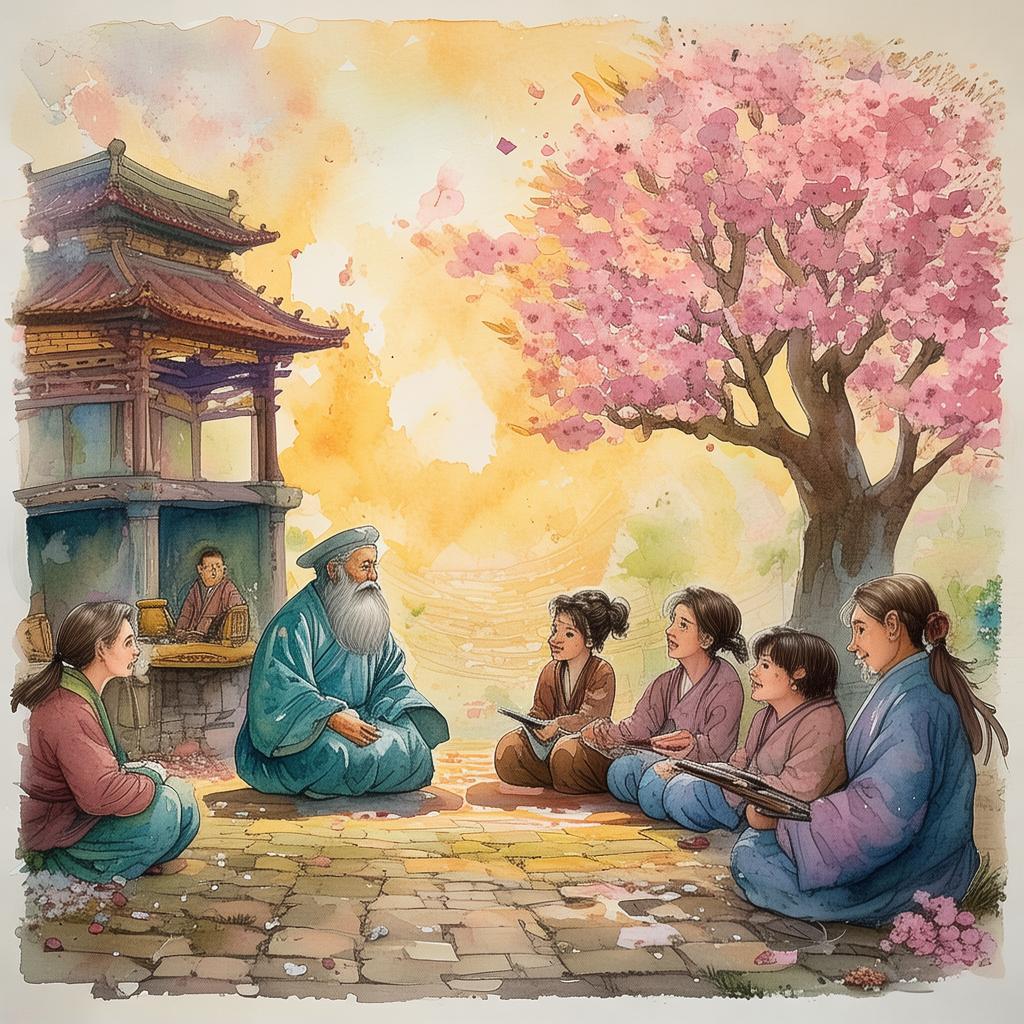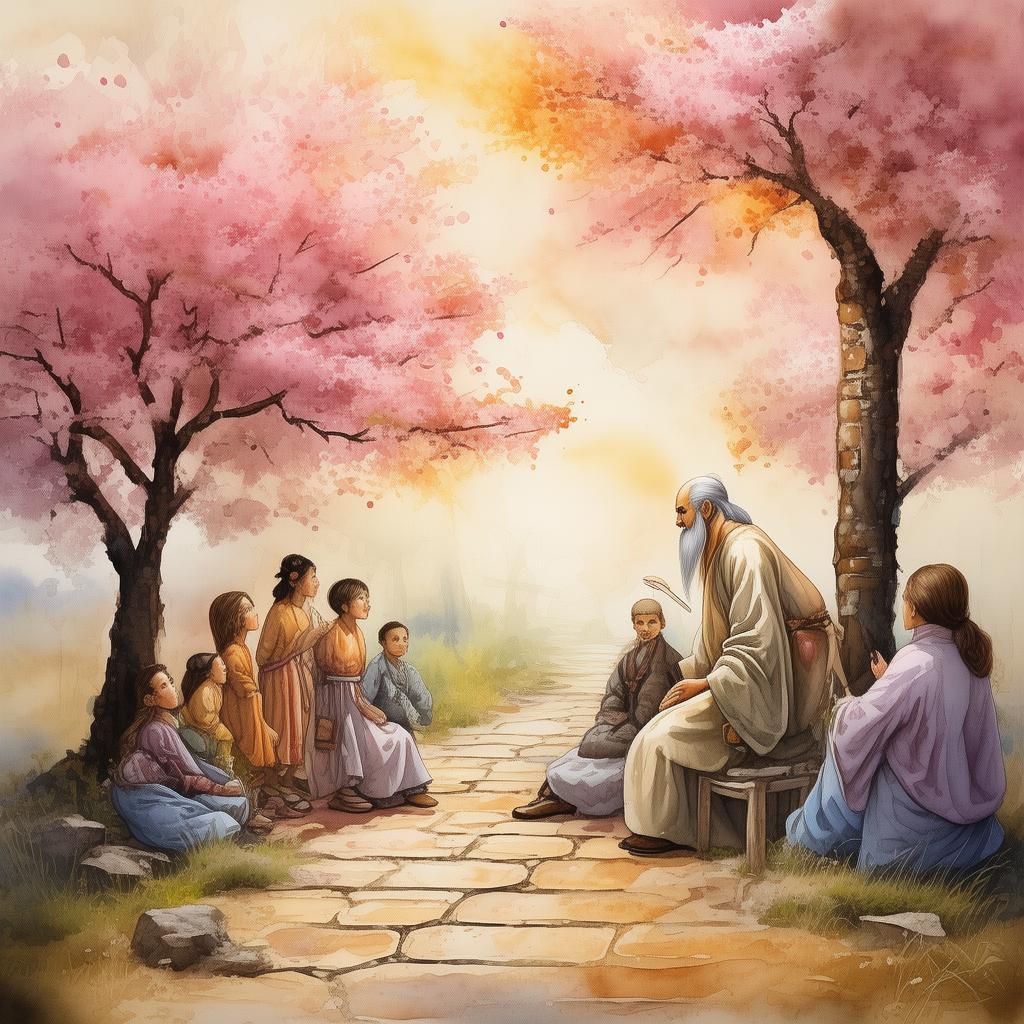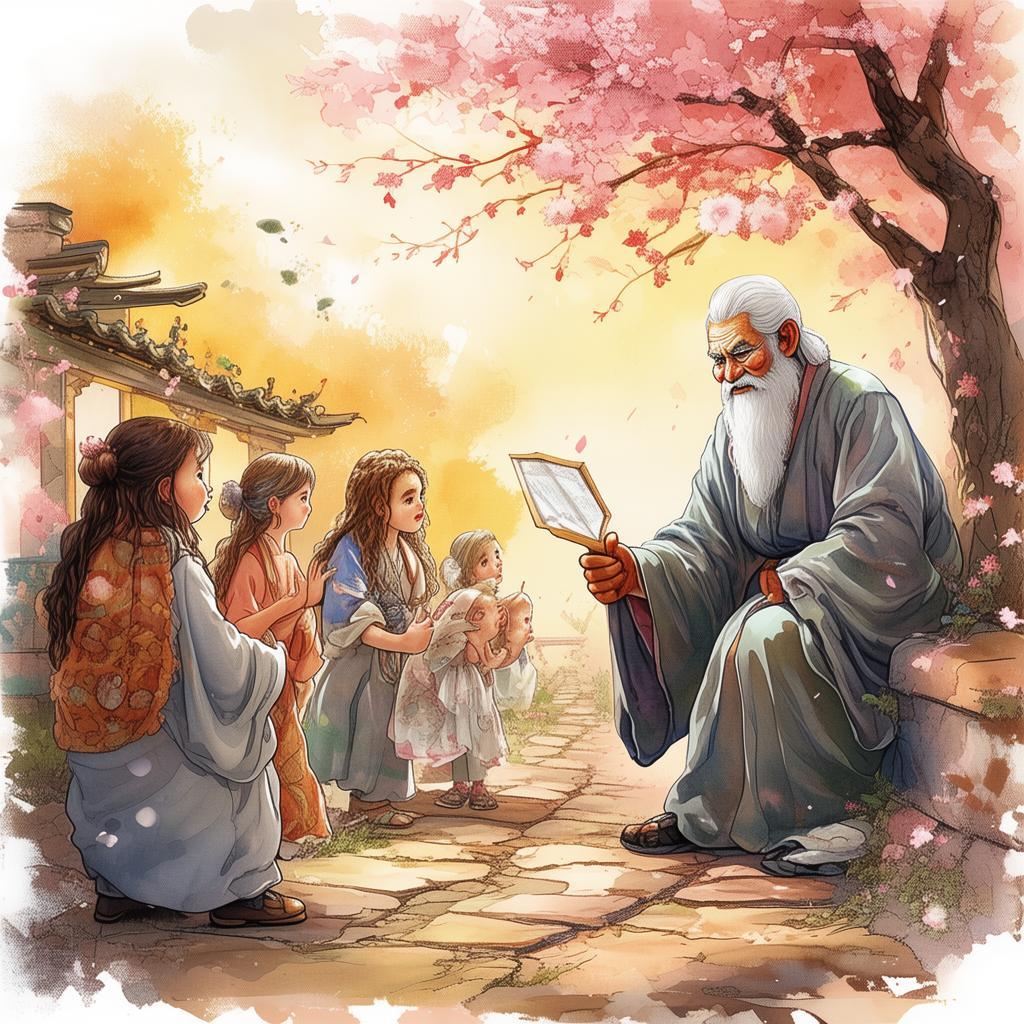The Dance of Deceit: The Tiger's Court Intrigue
In the heart of a bustling imperial court, where the whispers of power were as prevalent as the scent of incense, there lived a man named Tang. Renowned for his wit and cunning, Tang was a master of the comedy of manners, capable of turning the most dire situations into laughter. Yet, beneath his suave demeanor, lay a heart that beat with the rhythm of ambition and the fear of failure.
The court was a den of tigers, each vying for the favor of the Emperor, a ferocious ruler known for his unpredictable moods. In this court, the highest honor was to perform at the Emperor's birthday feast, where the best comedies were showcased, and the greatest minds were celebrated.
As the date of the festival approached, rumors swirled that the Emperor had a peculiar request: a comedy that would not only entertain but also reveal the true nature of the courtiers. The task fell to Tang, who, despite his fears, accepted the challenge with a smile that could charm even the most skeptical tiger.
Tang spent countless nights perfecting his comedy, "The Tiger's Dance," a tale of cunning, deceit, and the unspoken rules of the court. The play was a masterpiece, filled with subtle jokes and hidden meanings that would only be understood by those who knew the court's inner workings. The characters were thinly veiled portraits of the courtiers, each with their own ambitions and secrets.
On the night of the festival, the court was abuzz with anticipation. The Emperor, seated in his throne, was surrounded by his closest advisors, each one eyeing the other with a mix of curiosity and suspicion. As the curtain rose, the audience was treated to a performance that was both hilarious and chilling.
The story began with a naive courtier, played by Tang himself, who believed in the purity of the court. He danced with the grace of a tiger, unaware of the danger that lay ahead. As the play progressed, the audience watched in awe as each character revealed their true colors, their laughter mingling with the clinking of cups.
The climax of the play arrived when the naive courtier was challenged by a cunning rival, played by another courtier. The dance between the two was a masterclass in manipulation, as each move was designed to outwit the other. The audience was on the edge of their seats, their breath held in anticipation of the outcome.
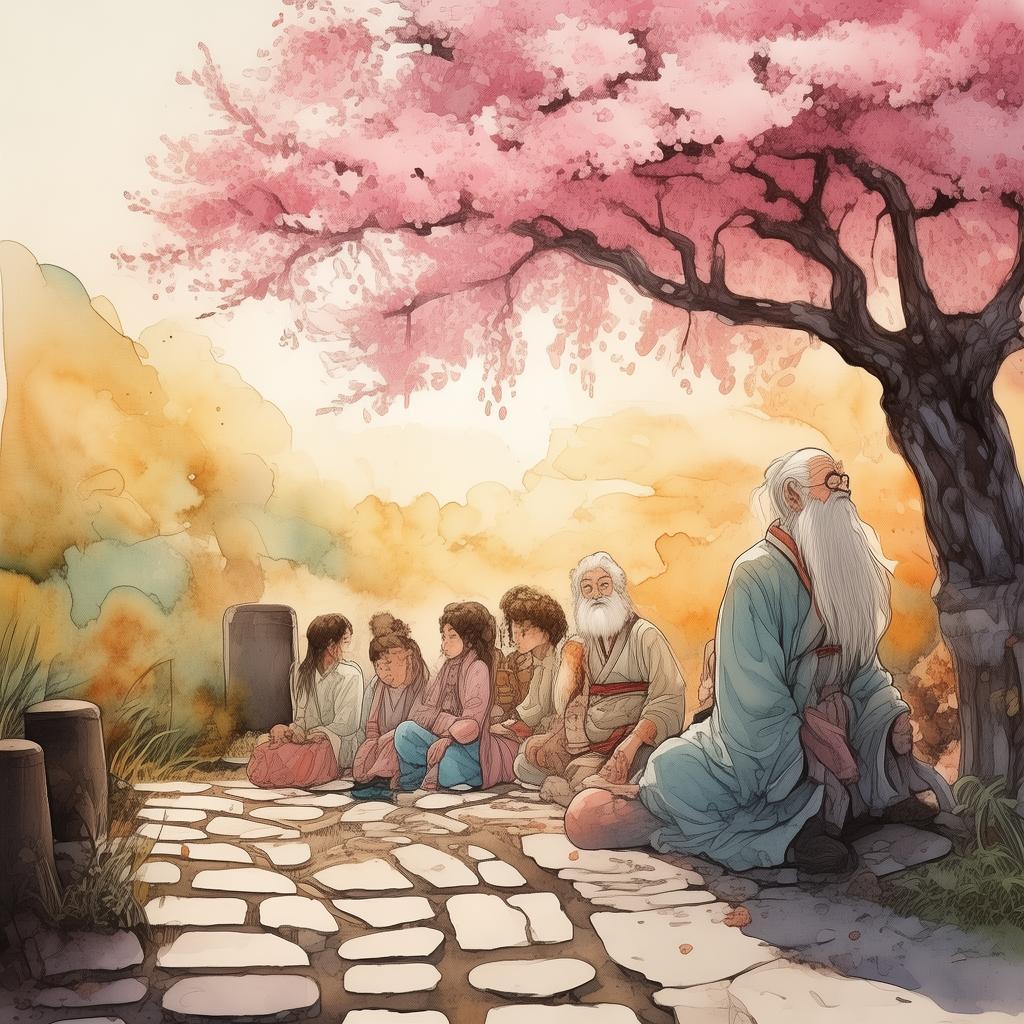
In the end, the naive courtier was victorious, not through strength or cunning, but through the sheer power of truth and simplicity. The audience erupted into applause, their laughter echoing through the court.
The Emperor, who had been a silent observer, smiled warmly at the end of the play. He stood and addressed the court, "Tonight, we have seen the true nature of our court. It is not the cunning or the strength that makes one great, but the courage to face the truth."
Tang, who had been the architect of the comedy, felt a surge of pride. He had not only entertained the court but had also revealed its deepest secrets. He had danced with the tigers and emerged unscathed.
The following morning, the Emperor summoned Tang to his private chamber. "You have performed well, Master Tang," he said, his voice soft. "You have shown us the comedy of manners, and we are grateful."
Tang bowed deeply, "Your Majesty, it was my honor."
The Emperor continued, "I have a task for you. There is a plot against me, and I need your wit to uncover it."
Tang nodded, understanding the gravity of the task. He had danced with the tigers, and now he must dance even more carefully to ensure his own survival.
The story of Tang's dance with the tigers became a legend in the court. It was said that he had not only entertained the court but had also preserved its integrity. And so, the comedy of manners lived on, a reminder that even in the court of tigers, truth and wit could triumph.
✨ Original Statement ✨
All articles published on this website (including but not limited to text, images, videos, and other content) are original or authorized for reposting and are protected by relevant laws. Without the explicit written permission of this website, no individual or organization may copy, modify, repost, or use the content for commercial purposes.
If you need to quote or cooperate, please contact this site for authorization. We reserve the right to pursue legal responsibility for any unauthorized use.
Hereby declared.
